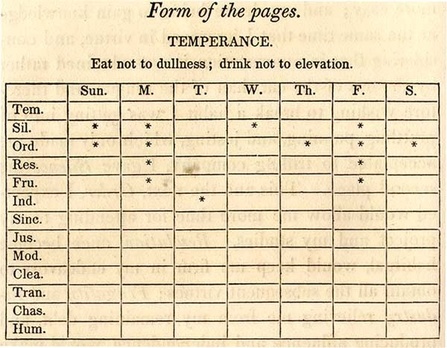Benjamin Franklin made quite an effort to improve his moral character. And he started this at age 20. You may have read his list of moral virtues and how he graded himself on a daily basis. He had a list of 12 virtues, then he added one more — number 13 — Humility. He said people accused him of being dogmatic and overly opinionated, to a fault (which surprised him.) So he set out to improve. This is what he did, and how well it worked, which applies to anytime you might find yourself in an argument:
I made it a rule to forbear all direct contradiction to the sentiments of others, and all positive assertion of my own. I even forbid myself… the use of every word or expression in the language that imported a fix’d opinion, such as certainly, undoubtedly, etc., and I adopted, instead of them, I conceive, I apprehend, or I imagine a thing to be so or so; or it so appears to me at present.
When another asserted something that I thought an error, I deny’d myself the pleasure of contradicting him abruptly, and of showing immediately some absurdity in his proposition;
and in answering I began by observing that in certain cases or circumstances his opinion would be right, but in the present case there appear’d or seem’d to me some difference, etc. I soon found the advantage of this change in my manner; the conversations I engag’d in went on more pleasantly.
The modest way in which I propos’d my opinions procur’d them a readier reception and less contradiction; I had less mortification when I was found to be in the wrong, and I more easily prevail’d with others to give up their mistakes and join with me when I happened to be in the right.
Old Ben said he was able to convince others more readily, and others sought his opinion. He confessed that he wasn’t that great a speaker, but that he was able to prevail and carry his points when he learned to be less dogmatic.


